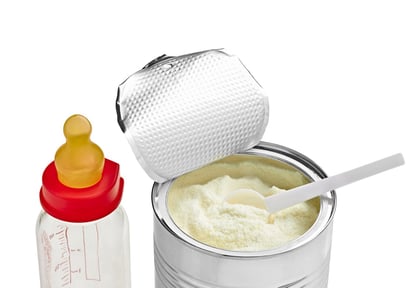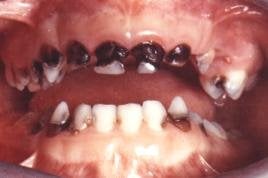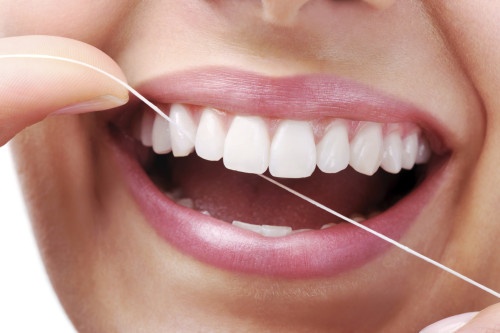DENTISTRY FOR CHILDREN: Preventing Dental Problems in Children
Everything you need to know to prevent dental problems in children in one place! At every stage of a child’s life there are things that you can do...
5 min read
Dr. Joanne Baldos and Dr. Adam Szymczak : Nov 9, 2018 9:47:17 AM

If you Google “fluoride good” you will get about 21 million results.
If you Google “fluoride bad” you will get about 23 million results.
As a parent wanting to make the right choices for yourself and your family how do you make sense of this information overload and make smart choices about fluoride?
What follows is a guide to help you make the choice that is right for you. It is a summary of the 44 million pages indexed by Google written from the perspective of a concerned parent.

Is fluoride good or bad for us? This is the WRONG question! Because if you conclude that fluoride is good then you may over consume fluoride and suffer its side effects, if you convince yourself that fluoride is bad then you may avoid it altogether and rob yourself of its benefits.
Black and white thinking gets us in trouble.
"All things are poison, and nothing is without poison, the dosage alone makes it so a thing is not a poison." - Paracelsus.
This quote is often condensed to: "The dose makes the poison.”
Even water and oxygen, the very basis of life, can be toxic if over consumed! Water poisoning (over-hydration) occurs when excessive water intake causes electrolyte imbalance which in turn can cause fatal disturbances in brain function. Oxygen poisoning is real too!
“Too much of anything isn’t good for anyone.”- Ray Bradbury

95% of toothpastes sold are fluoridated, however, the fluoride-free toothpaste market is growing because the fear of fluoride is growing.
Using fluoride-free toothpaste is a mistake. It is the fluoride in the toothpaste that prevents and fights cavities. There are no negative health effects to brushing your teeth with fluoride toothpaste. Fluoride is the most important ingredient in toothpaste.
Any concerns about the negative health effects ( real, imagined and unknown) ALL have to do with swallowing too much fluoride from the water supply.
Recommendation: fluoride toothpaste should be used twice a day:

If your child is prone to cavities: a tiny smear of fluoridated toothpaste should be used as soon as the first tooth comes in. When about a dozen baby teeth have erupted, increase the amount of fluoridated toothpaste to the size of a grain of rice. When all the baby teeth have erupted (20 teeth) increase the amount of fluoridated toothpaste to the size of half a pea.
If your child is NOT prone to cavities: use a washcloth or a soft baby toothbrush with WATER ONLY. In the alternative you can use a kids toothpaste (no fluoride), then switch to a fluoridated toothpaste when the child is able to spit out excess toothpaste when asked to do so. The benefit of using a kids toothpaste (no fluoride) over just using water is minimal as it is the fluoride that is the active ingredient in toothpaste.
ALL KIDS above the age of 3 should be using a fluoridated toothpaste.
The use of fluoride as suggested above will prevent and fight cavities while eliminating the potential harmful effects of fluoride.
Childhood tooth decay:
A child is at risk of developing tooth decay if:
1. The child has poor oral hygiene:Children under the age of 6 should NEVER use a fluoride rinse because of the risk of swallowing large amounts of fluoride. Only those who are very prone to cavities should even consider using fluoride rinses. Those who are prone to cavities will benefit from more fluoride exposure which is best accomplished by using a high fluoride concentration toothpaste with the modified technique of spitting but not rinsing after brushing.
Patients that are prone to cavities will benefit from more topical fluoride exposure. In such cases professionally applied fluoride gels, foams and varnishes are beneficial.

The only known health benefit of fluoride is the prevention and fighting of cavities. So if you are not getting any cavities, you will not benefit from more fluoride.
If you are using a fluoridated toothpaste twice a day with proper technique you will NOT benefit further from ingesting fluoride.
Any concerns about the potential negative health effects ( real, imagined and unknown) from fluoride ALL have to do with swallowing too much fluoride from the water supply.
About 75% of the the US population receives artificially- fluoridated water. That number is about 45% in Canada and 2% in Europe!
Fluoridation of water is a compulsory mass medication of people without their consent. Only small portions of the population, those who do not brush twice a day with a fluoridated toothpaste, can benefit from fluoridated water. The remaining part of the population gets exposed to the real harmful effects of excessive ingestion of fluoride:
Excessive fluoride in water has been discussed along with:
However, the fluoridation of water is low and extremely unlikely to be causing these effects.
Thankfully the drinking water in Cambridge Ontario is not fluoridated.
The concentration of fluoridation is low, it is unlikely to have negative health effects in teens and adults. However, children especially bottle fed babies are at risk of consuming excessive quantities of fluoride in relation to body weight. Formula milk should be made with low or no-fluoride water as fluoride accumulates in the body.

Every medicine and dose should be specific to the patient. Canadian Dental Association recommendation to prevent dental fluorosis: “the total fluoride intake from all sources should not exceed 0.05-0.07 mg/kg/day” and yet a bottle-fed infant who consumes fluoridated water mixed with infant formula puts them way over the limit (at 0.20 mg fluoride/kg/day), that’s 400% higher than the max!
Well water should be tested every year. Your local health department will have water sample testing information.
In Cambridge Ontario, the Region of Waterloo Public Health and Emergency Services, located at 150 Main St., 1st Floor (rear of building) will test your well water for fluoride for $15.
Fluoride occurs naturally, it is released from rocks into soil and water. Your well should NOT exceed 0.7 mg/L, if it does you should consider filtration such as reverse osmosis and distillation systems. Carbon/ charcoal filtration systems do not remove fluoride.
———————————————————————————————————————————
RELATED INFORMATION THAT WILL HELP YOU:
KIDS DENTIST: Top 7 MISTAKES PARENTS MAKE in Helping Kids with Oral Health
DENTISTRY FOR CHILDREN: Preventing Dental Problems in Children———————————————————————————————————————————
In the best interest of your health and well-being,

Everything you need to know to prevent dental problems in children in one place! At every stage of a child’s life there are things that you can do...

There are only two body parts that are DESIGNED to be lost: the umbilical cord baby teeth Some people MISTAKENLY believe that because baby teeth...

1) No Need to Floss Anymore, Replace Your Floss with a Rinse! OR 2) Brush and Floss to Keep Dental Problems Away